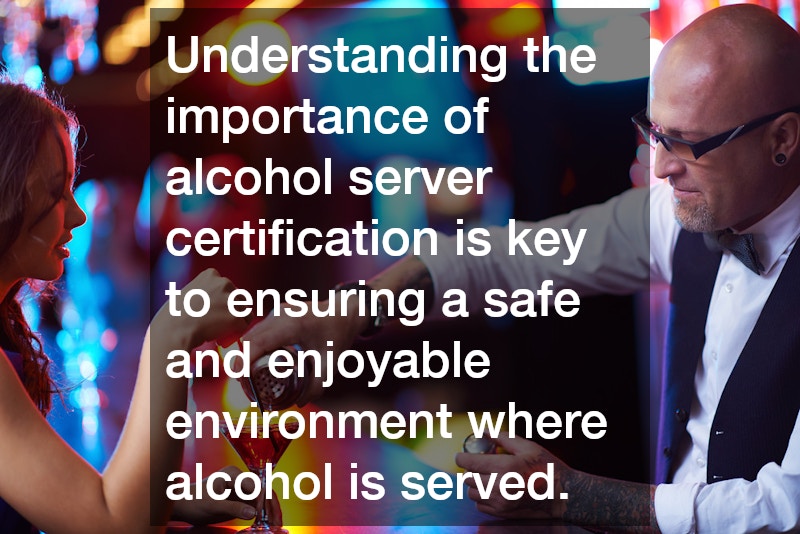Serving alcohol in commercial settings is a responsibility that requires training and certification. Whether you are working in a bar, restaurant, or any venue where alcohol is served, understanding the laws and responsibilities associated with your role is crucial. This is where alcohol server certification comes into play, helping protect the establishment, the staff, and the patrons.
In many jurisdictions, obtaining alcohol server certification is not just recommended but legally mandated. This certification equips servers with the knowledge necessary to handle alcohol responsibly, ensuring compliance with state and local regulations.
The process for obtaining certification can vary, but it typically involves completing a course and passing an exam.
This article will delve into the essentials of alcohol server certification, including its importance, the certification process, and the benefits of having such a qualification. By the end of this article, you will have a comprehensive understanding of why alcohol server certification is vital for anyone with a career involving the serving of alcoholic beverages.
The Importance of Alcohol Server Certification
Alcohol server certification is essential as it educates servers on the legal aspects of alcohol service. It covers topics such as identifying intoxication levels, age verification, and understanding the consequences of over-serving patrons. This training helps minimize the risks associated with serving alcohol, such as DUI incidents and legal penalties for the establishment.
Additionally, certification programs offer valuable insights into handling difficult situations, such as refusing service to an intoxicated customer. Servers learn techniques for de-escalating potentially volatile situations, ensuring both their safety and that of the patrons. Certification programs also emphasize the significance of maintaining a professional and responsible environment.
With alcohol server certification, establishments demonstrate their commitment to responsible alcohol service, which can enhance their reputation and credibility. Customers are more likely to trust venues that have made this investment in staff training. Furthermore, being certified can be an important factor for job seekers in the hospitality industry, making them more attractive candidates to potential employers.
The Certification Process
The process of obtaining alcohol server certification typically involves enrolling in an approved training program. These programs can be offered online or in person and vary in length depending on the specific requirements of the state or jurisdiction. Courses cover a wide range of topics, including alcohol laws, safe service practices, and the effects of alcohol consumption.
Upon completion of the training, participants must pass an examination that tests their understanding of the course material. The exam usually consists of multiple-choice questions and may include practical scenarios requiring the application of learned skills. Passing this exam demonstrates that the server is knowledgeable about their responsibilities and capable of handling alcohol-related situations effectively.
After passing the examination, the server receives their certification, which must often be renewed at regular intervals specified by local regulations. This renewal process ensures that servers stay informed about any changes to laws and service guidelines. Employers may also benefit from knowing that their staff have up-to-date knowledge, further contributing to the safe and lawful service of alcohol.
The Benefits of Alcohol Server Certification
Obtaining alcohol server certification provides numerous benefits to both the server and the establishment. For servers, it enhances their professional skills and knowledge, making them more competent and confident in their role. Certified servers are often seen as valuable assets by employers, which can lead to better job opportunities and career advancements.
For establishments, having certified staff can reduce liability risks associated with improper alcohol service. Insurance companies may offer lower premiums to establishments that require alcohol server certification, recognizing the reduced risk factor. Additionally, certification can lead to improved customer service, as certified servers are more adept at handling challenging situations.
Furthermore, by promoting responsible alcohol service, certified staff can help create a safer community environment. This proactive approach can decrease incidents of alcohol-related harm, contributing positively to the establishment’s image and standing within the community. Overall, alcohol server certification is a win-win for servers, establishments, and the patrons they serve.
Whether you are an employer, a server, or a patron, understanding the importance of alcohol server certification is key to ensuring a safe and enjoyable environment where alcohol is served. Prioritize this training as an investment in your future and the well-being of your community.
.

